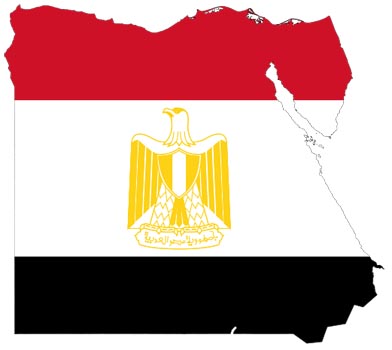Egyptians slow to feel credit crunch's sting
 Cairo - Cairo's Gazira Club sprawls lazily across a verdant island in the Nile.
Cairo - Cairo's Gazira Club sprawls lazily across a verdant island in the Nile.
In the days of the monarchy, it was reserved for English officers. And while it was nationalized after the revolution in 1952, the club remains a bastion of Cairo's elites and upper-middle classes.
If anyone in the Arab world's most populous country has felt the effects of the world financial crisis, they are likely to be found here.
According to World Bank figures, 40 per cent of Egypt's population lives on 2 dollars or less a day. The vast majority of the population does not own stocks, does not keep retirement savings in mutual funds, and always had difficulty getting a loan.
Even before the credit crisis hit, 92 per cent of loan applications from Egyptian businesses with less than 1 million dollars in annual revenue - or 99 per cent of Egyptian businesses - were rejected.
According to a 2008 study, more than 82 per cent of Egyptian enterprises are informal - they run on cash.
And it is this cash basis which - at least to some extent - is the reason why the effects of the world financial crisis have been slow to reach Egypt and why they have not hit all businesses alike.
Sitting by the Gazira Club's pool on a pleasant March afternoon, Hossam Ragab, who owns several furniture factories and who earns much of his revenue from exports to the Gulf states, was in a fine mood.
"The financial crisis has not affected me at all," he said. "I've been to furniture exhibitions around the Gulf and Italy. Business is great."
Not everyone was as cheerful, though. Unsurprisingly, brokers and bankers gathered at the club were particularly gloomy.
"I am afraid I will lose my job," said Sivine Sayyid, a 24-year- old customer service representative at an international bank. "They've already cut bonuses."
"Now there is no more dining at the Four Seasons," said Mohammed Ashmawy, a 33-year-old senior trader at Egypt's CIBC investment bank.
"I can't spend as much on travel," Ashmawy said. "I've switched to a cheaper satellite TV package. I'm even selling some of my possessions to maintain the same standard of living."
The Egyptian government initially cast the world financial crisis as an opportunity for the country.
"There is a very strong signal that Egypt, like some emerging markets, could really benefit from the crisis," said Trade and Industry Minister Rashid Mohammed Rashid in December.
"If there is any investment in the world, it will go to emerging markets," he said.
More recently, however, the government has warned of pain ahead.
In February, Prime Minister Ahmed Nazif told parliament he expected tourism, foreign remittances and revenue from the Suez Canal to decline in response to the world financial crisis.
"But," he said, "everyone knows that these areas account only for 20 per cent of gross domestic product while the remaining 80 per cent is generated internally."
Signalling that the government is taking slowing growth and dwindling inflation seriously, Egypt's central bank in February has cut interest rates for the first time since 2006.
Moreover, the central bank said inflation slowed to an 11-month low of 14.3 per cent annually in January.
Trade and Industry Minister Rashid has said that he expects inflation to drop to 9 per cent in the first quarter of 2009.
Last spring, violence flared in bread queues at government- subsidized bakeries, as spiraling wheat prices drove more of the country's urban poor to rely on subsidized bread.
But the price of wheat - of which Egypt imports 7.5 million tonnes a year, more than any other country in the world - has dropped more than 57 per cent since March 2008.
For Hamdi Abel-Fatah, who owns a cafe in Mit Oqba, an old agricultural village swallowed by breezeblock towers hastily constructed during former President Anwar al-Sadat's infitah or economic opening in the 1970s, this is good news.
Sitting in a corner of his cafe, he waived his hand dismissively when asked about the financial crisis.
"People will never stop eating or drinking," he said. "The financial crisis will affect those with millions, but common people like us are not affected." (dpa)